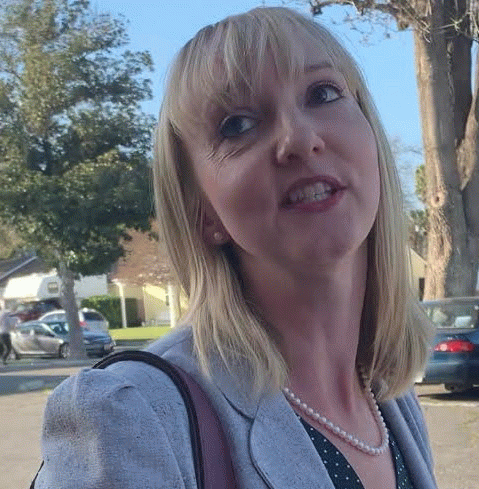Local Charter Schools Receive Millions In PPP Loans As Area Districts Struggle To Find Money To Reop Local charter schools have received millions in paycheck protection program loans -- money traditional public schools were not able to apply for -- leavin
(Image by YouTube, Channel: CBS Los Angeles) Details DMCA
"I hear time and time again that charters are not businesses. If they're not, then why are they able to get this money?"
- LAUSD Parent
Charter schools in California are funded based on their enrollment using the same per-pupil funding rates as their public-school counterparts. Additionally, the charter-school industry's investment in political campaigns has given them advantages over their competition in receiving public funds for their private operations. For example, Granada Hills Charter school played a shell game to take advantage of a loophole written into the Charter School Facility Grant (SB740) that "is intended to provide grants to charter schools to assist with facilities' rent and lease costs associated with the school". Since SB740 does not allow schools to get reimbursed for mortgage payments, the school transferred property they own to a Limited Liability Company (LLC) that they completely control. The school then signed a lease with the LLC and gets reimbursed for the payments that they are sending to themselves.
While all schools have struggled to adapt to the challenges presented by COVID-19, only charter schools were given the opportunity, under the Payroll Protection Program (PPP) of the CARES Act, to receive funds that were meant to help prevent small businesses from laying off employees. In Los Angeles, Citizens of the World Charter Schools, Da Vinci Schools, iLead, Larchmont Charter School and Palisades Charter High School each received $2 to $5 million under the program. After getting "the money while the getting's good", the board at Palisades then voted to lay off some of their employees. Brightstar Schools, Granada Hills Charter, and Birmingham Community Charter High School each took $5 to $10 million.
In defending the charter-school industry's diversion of these funds from small businesses in need, Debbie Veney from the National Alliance for Public [SIC] Charter Schools told CBS Los Angeles that charter schools had to take the money because they "have to actually pay for their facilities, they have to pay rent or mortgage for the buildings that they're in, they have to pay for transportation and they have to take this out of their operating cost". These are also expenses that are borne by public schools, which were not eligible to apply for PPP funds. While charter schools were created as a way to introduce competition for public-education dollars, offering them access to additional funding streams like the PPP distorts the student outcomes that they use to compare themselves to public schools.
CBS Los Angeles' Kristine Lazar states that six of the seven charter schools did not respond to a request for comment on their receipt of PPP funds. LAUSD School Board candidate Marilyn Koziatek "leads the community outreach department for Granada Hills Charter", one of the schools that declined to comment on the report. Finding information about the school's decision to apply for PPP funds is near impossible since the school does not provide audio or video recordings of their board meetings. Worse yet, the minutes of the meeting in which the PPP loan was on the agenda does not provide any detail about discussions that they had about applying for the funds or what they planned to use the money for.
In trying to learn how the candidates for the LAUSD School Board felt about the issues surrounding PPP loans, I sent their campaigns the following questions:
- Are charter schools businesses or public organizations?
- Should charter schools be eligible for loans offered by the Small Business Administration?
- Should loans be used as a way for schools to earn money on the spread between the interest that they are paying on the loan and the interest that they are receiving by keeping the money in a bank account?
Koziatek and her campaign declined to respond.

Marilyn Koziatek refusing to answer questions about her support from the California Charter School Association after they ran anti-Semitic ads.
(Image by Carl J. Petersen) Details DMCA
It is not surprising that Granada or the rest of the charters who took this money would not answer questions from the press since taking money from a program meant to reduce ballooning unemployment is not a good look for the charter-school industry. Veney says that "In this moment we did whatever was necessary to continue serving students." However, unlike the small businesses that could not get access to these funds, these charter schools had no immediate reduction in revenue. Do we really want organizations with a "by any means necessary" mindset, even if the decision is not ethically sound, to be educating our children? Do their bottom-line concerns hurt our students in other areas?
________________________________
Carl Petersen is a parent, an advocate for students with special education needs, an elected member of the Northridge East Neighborhood Council, a member of the LAUSD's CAC, and was a Green Party candidate in LAUSD's District 2 School Board race. During the campaign, he was endorsed by the Network for Public Education (NPE) Action and Dr. Diane Ravitch called him a "strong supporter of public schools." Links to his blogs can be found at www.ChangeTheLAUSD.com. Opinions are his own.





